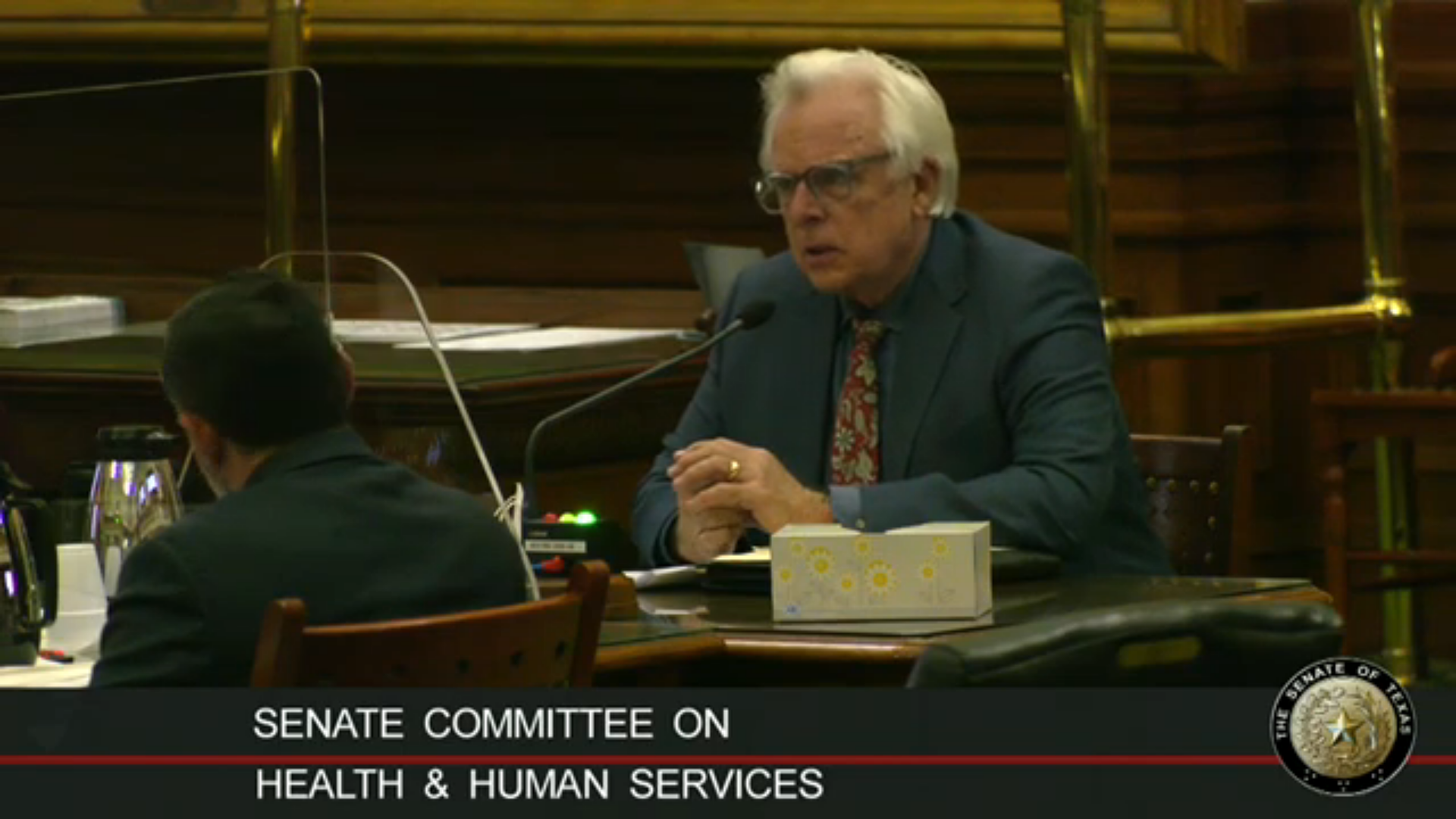Wesley J. Smith Testimony Before the Texas Senate Health and Human Services Committee in Support of SB 917
View at YouTubeGood morning. My name is Wesley J. Smith. I am a senior fellow at the Discovery Institute’s Center on Human Exceptionalism. For the last thirty years I have been deeply engaged throughout the nation and internationally in public policy debates about the most important bioethical issues facing our nation and global community, specifically including the issue of so-called “futile care,” also known as “inappropriate care.”
My work in the fields about which I advocate is entirely secular, which I believe is appropriate to the creation of public policy in a nation governed by the rule of law. My biography is attached to my written testimony.
I appear today to urge this committee to support SB 917. Coercion has no place in the practice of medicine. As such, the primary purpose of SB 917 is to prevent unilateral forced withdrawals — over the objection of patients and/or families — of WANTED life-extending treatment based on doctors’ beliefs about the quality of the patient’s life. I emphasize “wanted.”
The term “futile care” is a misnomer. In a futile care imposition, treatment is not withdrawn because it is NOT working, but because it IS — that is, the desired care is keeping the patient alive when doctors think the patient is better off dying. In essence, such impositions constitute ad hoc health care rationing.
Decisions about when to stop fighting and accept natural death are not medical determinations but deeply intimate personal value judgments. The issue presented in such controversies is when is a life “worth living?” Surely, that is a decision for the patient and/or family based on their own values and moral or religious beliefs. Thus, futile care impositions amount to a profound violation of patient autonomy as they allow “the doctor” or a hospital bioethics committee to decide, in essence, that the “time has come to die.”
This is true even if the patient wrote an advance medical directive instructing treatment to be provided. Thus, if a patient instructs that life-support to be withdrawn under certain circumstances, that choice is deemed sacrosanct. But under futile care impositions, if the patient requests to fight for life, that choice may be vetoed. Talk about an injustice!
Texas has the most egregious futile care law in the nation. If a patient or family refuses permission to withdraw life-extending treatment, the doctor is entitled to take the controversy to a hospital bioethics committee. The committee does not meet as mediators — a proper bioethics committee role — but as quasi-judicial decision makers. The only thing lacking in these hearings is due process. The meeting occurs behind doors. There is no formal record of the meeting made, nor is there a formal right of appeal.
If the committee decides that treatment is to be unilaterally withdrawn, the “10-day rule” kicks in, under which the patient or family has a mere 10 days within which to find another institution to provide the wanted treatment. Imagine the stress and difficulty of such a task! If they fail, the hospital is entitled to withdraw life-support so the patient dies.
SB 917 simply repeals the unjust 10-Day rule by requiring treatment to continue until such time as a new facility can be found. Remember, this is non-elective treatment. If it is withdrawn, the patient will almost surely die. Under such circumstances, maintaining care pending transfer is a matter of respect for the life and values of the patient and family.
Please consider the horror that the current law inflicts upon your constituents. These are people in crisis: A deathly ill loved one is lying in a hospital bed. The last thing you would want to do in such circumstances is engage a desperate, time-is-of-the-essence search for another hospital. Requiring them to fight for their loved one’s life against their own doctor and hospital — is simply beyond the pale.
More than that, it is the antithesis of social justice. Maneuvering through the medical system is a daunting task for anyone. Asking people who may not have the education, life skills, or ability to carry the burden of fighting doctors and the hospital is both unfair and unwise. It breeds distrust in the medical system and leads victims of futile care imposition to conclude — whether rightly or wrongly — that in a time of health care cost cutting, their loved one was crassly deemed too expensive to save.
Again, coercion has no place in medicine. SB 917 promotes comity, which furthers trust and collaboration in life and death decision making.
Thank you for your time and consideration. I will be happy to answer any questions you may have.
